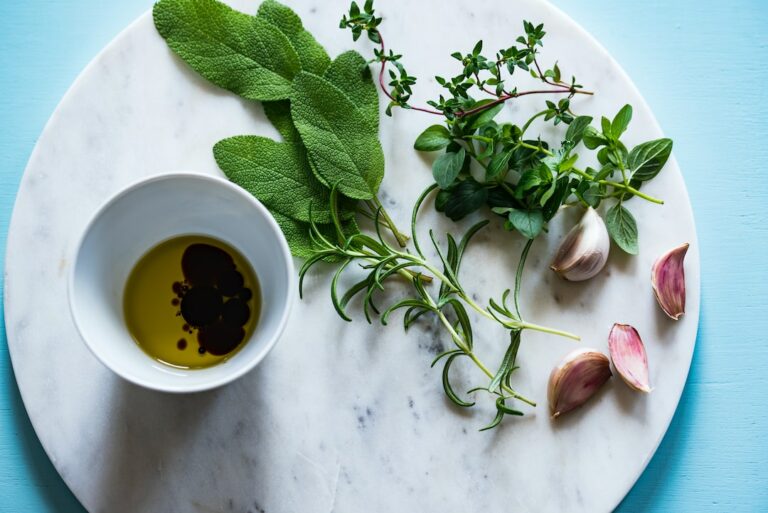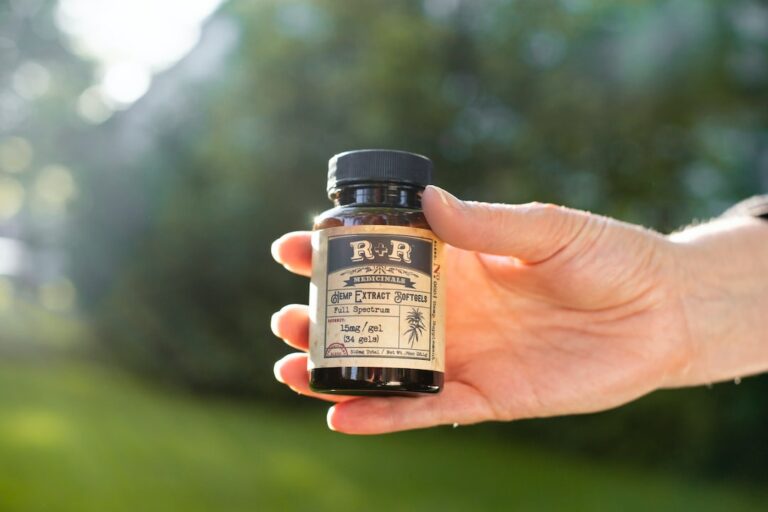Introduction
Why herbs are important
Herbs play a crucial role in our overall health and well-being. They have been used for centuries for their medicinal properties and are known for their ability to support various bodily functions. One of the key benefits of herbs is their ability to aid in toxin elimination. By incorporating herbs into our daily routine, we can help our bodies flush out harmful toxins and promote a healthier internal environment. Whether it’s through herbal teas, tinctures, or incorporating fresh herbs into our meals, the power of herbs in supporting toxin elimination should not be underestimated.
Benefits of using herbs
Using herbs in your daily life can provide numerous benefits for your overall well-being. These natural plants have been used for centuries in various cultures for their medicinal properties and culinary uses. Incorporating herbs into your diet can enhance the flavor of your meals while also boosting your immune system and improving digestion. Some commonly used herbs like basil, ginger, and turmeric have anti-inflammatory properties that can help reduce pain and inflammation in the body. Additionally, herbs like chamomile and lavender have calming effects that can promote relaxation and reduce stress. By having a collection of essential herbs in your pantry, you can easily add a dose of healthy goodness to your everyday life.
How to incorporate herbs into your daily routine
Incorporating herbs into your daily routine can be a great way to enhance your holistic healing journey. By adding herbs to your meals, teas, or even using them in aromatherapy, you can experience the numerous health benefits they offer. Herbs have been used for centuries in traditional medicine practices and are known for their therapeutic properties. Whether you are looking to boost your immune system, improve digestion, or reduce stress, incorporating herbs into your daily routine can provide natural and effective solutions. Explore the world of herbs and discover the power of holistic healing.
Top 5 Must-Have Herbs

Basil
Basil, also known as the king of herbs, is a popular culinary herb that is widely used in various cuisines around the world. It is native to the Mediterranean region and has been cultivated for centuries for its aromatic leaves and medicinal properties. Basil leaves are known for their distinct flavor, which is a combination of sweet, spicy, and slightly peppery notes. They add a refreshing and vibrant taste to dishes, making them a staple in many recipes. In addition to its culinary uses, basil is also valued for its numerous health benefits. It is rich in antioxidants, vitamins, and minerals, and has been traditionally used to promote digestion, reduce inflammation, and boost the immune system. Some of the key nutrients found in basil include vitamin K, vitamin A, iron, calcium, and magnesium. Whether used fresh or dried, basil is a versatile herb that can enhance the flavor and aroma of a wide range of dishes, including salads, soups, sauces, and pasta. So, next time you’re in the kitchen, don’t forget to have some basil on hand to elevate your culinary creations.
Rosemary
Rosemary is a versatile herb that is commonly used in cooking. It has a strong, aromatic flavor that adds depth and complexity to dishes. Rosemary is native to the Mediterranean region and has been used for centuries for its culinary and medicinal properties. This herb is rich in antioxidants and has anti-inflammatory properties. It is also believed to improve digestion and boost memory and concentration. In the kitchen, rosemary can be used to flavor a variety of dishes, including roasted meats, vegetables, and soups. Its bold flavor pairs well with garlic, lemon, and olive oil. Whether used fresh or dried, rosemary is a must-have herb in every kitchen.
Thyme
Thyme is a versatile herb that has been used for centuries for its medicinal properties. It is known for its strong flavor and aroma, making it a popular ingredient in various cuisines around the world. Thyme contains several compounds that have been found to have antimicrobial properties, making it one of the most effective natural antibiotics. Its active compounds, such as thymol and carvacrol, have been shown to inhibit the growth of bacteria and fungi. Thyme can be used to treat respiratory infections, digestive issues, and skin conditions. It is also believed to have antioxidant and anti-inflammatory properties. Incorporating thyme into your diet or using it as a herbal remedy can provide numerous health benefits.
Herbs for Common Ailments

Peppermint for digestion
Peppermint is a powerful herb known for its beneficial effects on digestion. It has been used for centuries as a natural remedy for various digestive issues. Peppermint contains menthol, which helps to relax the muscles of the gastrointestinal tract, relieving symptoms such as bloating, gas, and indigestion. In addition, peppermint has antimicrobial properties that can help to reduce the growth of harmful bacteria in the gut. It is also believed to stimulate the production of digestive enzymes, which aids in the breakdown of food. Overall, peppermint is a safe and effective herb to support healthy digestion.
Lavender for relaxation
Lavender is a versatile herb that is widely known for its calming and relaxing properties. It has been used for centuries in natural medicine to promote relaxation and reduce anxiety. Lavender can be consumed in various forms, such as lavender tea or essential oil, to provide its soothing effects. The aroma of lavender is known to have a therapeutic effect on the mind and body, helping to relieve stress and promote a sense of calm. In addition to its relaxation benefits, lavender also has antibacterial and antifungal properties, making it a popular ingredient in skincare products. Whether enjoyed as a cup of chamomile tea or used in aromatherapy, lavender is a must-have herb for anyone seeking natural remedies for relaxation.
Echinacea for immune support
Echinacea is a powerful herb known for its immune-supporting properties. It has been used for centuries to help strengthen the body’s natural defenses and promote overall wellness. Echinacea is rich in antioxidants and can help stimulate the production of white blood cells, which play a key role in fighting off infections and diseases. Research has shown that taking Echinacea supplements or using Echinacea-based products may help reduce the duration and severity of colds and flu. Additionally, Echinacea can also help support respiratory health and alleviate symptoms of allergies. Incorporating Echinacea into your daily routine can be a beneficial way to boost your immune system and maintain optimal health.
Herbs for Cooking

Parsley for garnishing
Parsley is a versatile herb that is commonly used for garnishing dishes. It adds a fresh and vibrant touch to any meal, making it visually appealing. Apart from its decorative purpose, parsley also offers several health benefits. It is rich in vitamins A, C, and K, as well as minerals like iron and calcium. Moreover, parsley is known for its antioxidant properties and can help in reducing inflammation in the body. It is also used in herbal medicine for its diuretic and digestive properties. Incorporating parsley into your diet can support overall health and well-being.
Cilantro for Mexican cuisine
Cilantro is an essential herb in Mexican cuisine. Its vibrant and citrusy flavor adds a refreshing touch to dishes like salsas, guacamole, and tacos. Not only does cilantro enhance the taste of these dishes, but it also offers numerous health benefits. One of the key benefits of cilantro is its potential to improve brain function. Studies have shown that cilantro contains antioxidants and compounds that may help protect against oxidative stress and inflammation in the brain. Additionally, cilantro has been found to have detoxifying properties, which can support overall brain health. Including cilantro in your diet can be a delicious way to boost your brain function and promote cognitive well-being.
Dill for pickling
Dill is a versatile herb that is commonly used in pickling. Its distinct flavor adds a tangy and refreshing taste to pickled vegetables. Dill is rich in antioxidants and has anti-inflammatory properties, making it a beneficial herb for overall health. It is also known for its digestive benefits and can help alleviate bloating and indigestion. In addition to its culinary uses, dill has been used for centuries in traditional medicine for its various health benefits. It is a good source of vitamins and minerals, including vitamin C, vitamin A, and manganese. Dill is easy to grow and can be grown in both garden beds and containers. Whether you’re a fan of pickles or want to explore the world of pickling, dill is an essential herb to have in your kitchen.
Herbs for Natural Remedies

Chamomile for sleep
Chamomile is a popular herb known for its calming properties and is often used as a natural remedy for promoting sleep. It has been used for centuries in traditional medicine to help relax the mind and body, making it an ideal choice for those struggling with insomnia or sleep disorders. Chamomile is believed to work by increasing the levels of serotonin and melatonin in the brain, which are neurotransmitters that promote relaxation and sleep. However, it is important to note that while chamomile is generally considered safe, there may be some contradictions when using it as a sleep aid. It is always recommended to consult with a healthcare professional before incorporating any new herbal remedies into your routine.
Ginger for nausea
Ginger is a powerful herb that has been used for centuries to treat nausea and digestive issues. It contains compounds that help to calm the stomach and reduce feelings of queasiness. Equelle is a natural supplement that contains ginger extract, providing all the benefits of ginger in a convenient form. Whether you’re experiencing motion sickness, morning sickness, or just a general upset stomach, ginger can provide relief. Incorporating Equelle into your daily routine can help to alleviate nausea and promote overall digestive health.
Turmeric for inflammation
Turmeric is a powerful herb that has been used for centuries to treat inflammation. It contains a compound called curcumin, which has been shown to have anti-inflammatory properties. Research has shown that turmeric can help reduce inflammation in conditions such as arthritis, heart disease, and cancer. In addition to its anti-inflammatory benefits, turmeric also has antioxidant properties, which can help protect the body against damage from free radicals. Supplementing with magnesium and vitamin D can also be beneficial for reducing inflammation. Magnesium is involved in over 300 biochemical reactions in the body, including those that regulate inflammation. Vitamin D plays a role in immune function and can help reduce inflammation. Incorporating turmeric and these supplements into your daily routine may help support a healthy inflammatory response.
FAQ (Frequently Asked Questions)

How do I store fresh herbs?
Storing fresh herbs properly is essential to maintain their flavor and extend their shelf life. Here are some tips on how to store fresh herbs:
1. Refrigerate: Most fresh herbs can be stored in the refrigerator. Wrap them loosely in a damp paper towel and place them in a plastic bag or container. This will help to retain their moisture and prevent them from wilting.
2. Trim and discard: Before storing, remove any wilted or discolored leaves and trim the stems. This will help to maintain the freshness of the herbs.
3. Freezing: Another option is to freeze fresh herbs. Wash and dry them thoroughly, then chop or leave them whole before placing them in a freezer-safe container or bag. Freezing can preserve the flavor of the herbs for a longer period.
4. Drying: If you prefer to dry your herbs, tie them in small bundles and hang them upside down in a well-ventilated area. Once they are completely dry, remove the leaves from the stems and store them in an airtight container.
By following these storage methods, you can ensure that your fresh herbs stay fresh and flavorful for longer.
Can I use dried herbs instead of fresh?
When it comes to cooking with herbs, many people wonder if they can use dried herbs instead of fresh. The answer is yes, you can use dried herbs as a substitute for fresh ones in most recipes. Dried herbs have a more concentrated flavor, so you may need to use less of them compared to fresh herbs. However, it’s important to note that the texture and appearance of the dish may be slightly different when using dried herbs. Additionally, some herbs, such as basil and parsley, lose their vibrant color when dried. Despite these differences, dried herbs are still a great option for adding flavor to your dishes. They are also convenient to have on hand, as they have a longer shelf life compared to fresh herbs. So go ahead and experiment with dried herbs in your cooking, and enjoy the convenience and versatility they offer.
Are there any side effects of using herbs?
Using herbs for various purposes has become increasingly popular due to their numerous health benefits. However, it is important to be aware of any potential side effects that may arise from their use. While herbs are generally considered safe, some individuals may experience adverse reactions. Common side effects include allergic reactions, digestive issues, and interactions with certain medications. It is crucial to consult with a healthcare professional before incorporating herbs into your routine, especially if you have any pre-existing medical conditions or are taking medications. By being informed and cautious, you can ensure a safe and beneficial experience with herbal remedies.













































